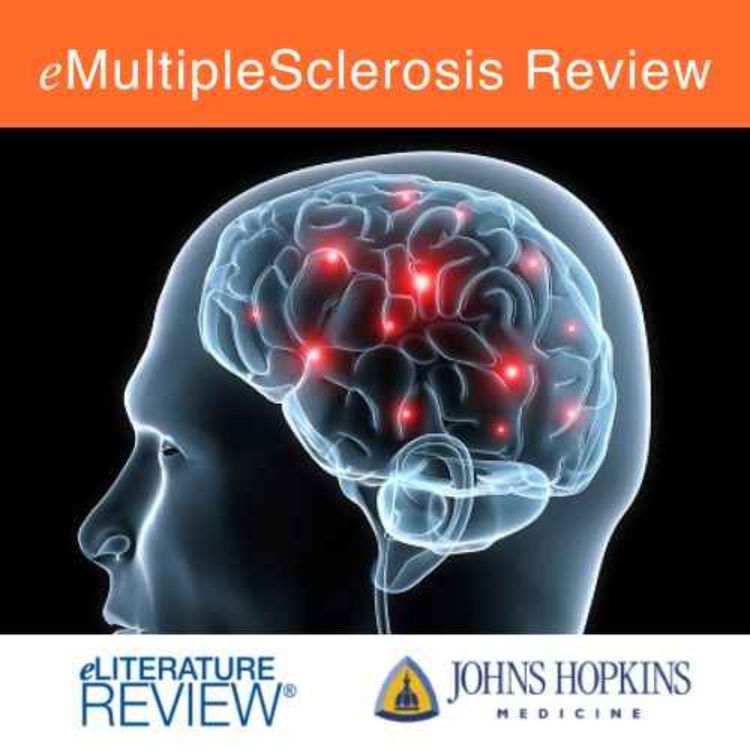Share

DKBmed Radio
Is that MS Diagnosis Accurate?
•
Is it true that a significant number of patients being treated for MS may not actually have the disease? What are the red flags — warnings that something about the patient’s condition does not meet the accepted MS diagnostic criteria — that need to be investigated?
Join us in this eMultipleSclerosis Review podcast, as Neuroimmunologist Dr. Gabrielle Macaron from Saint Joseph University’s Hotel Dieu de France Hospital in Beirut, Lebanon, and the Cleveland Clinic’s Mellen Center for Multiple Sclerosis, explains strategies to reduce misdiagnosis of MS.
Take our post-test to claim CME credits.
To read a companion newsletter click here.
More episodes
View all episodes

1. Dialogues in Obesity: Where Visionaries Meet to Lead the Change
32:12||Season 1, Ep. 1
Overcoming Barriers to PrEP in Rural America
30:51|PrEP. For most patients, that’s a simple drug regimen that can be prescribed after a negative HIV screen. Safe. Effective. Proactive protection to stop the spread of HIV infection in MSM, cisgender, and transgender individuals.Post-test for CME credits: https://elit.dkbmed.com/issues/228/test
Cystic Fibrosis Life Transitions
13:27|Until the advent of highly effective CFTR modulator medications, cystic fibrosis was considered a pediatric disease, because most individuals did not survive into adulthood. Now, with more adults living with CF than children, priorities must change. In these interviews, we discuss what transitions to a longer life with CF entails: from pediatric to adult care; from the possibilities of motherhood and the need for family planning; from adulthood into older age and the infirmities common to all aging adults.
New Directions in Long-Acting ART and Long-Acting PrEP
40:40|How will the current research advancements in long-acting ART affect clinicians’ ability to provide better care for their patients with HIV? The recent data show that the low uptake and adherence to PrEP may be largely due to the pill burden and potential stigma of daily dosing. How might the newer longer-acting PrEP regimens challenge this reluctance?Post-test for CME credits: https://elit.dkbmed.com/issues/226/test
Barriers To Minority Participation in MS Clinical Trials
23:57|In the clinical trials of new MS medications and procedures, why has the participation of racial and ethnic minority individuals been so low? Is it a difficulty with outreach? Are the patient barriers to participation underrecognized and underaddressed? Does historical mistrust of the medical community remain a strong negative? What should clinicians and trial designers do to increase diversity to improve care for all individuals with MS?Take our post-test to claim CME credits (https://elit.dkbmed.com/issues/223/test)Read this podcast's companion newsletter here. (https://elit.dkbmed.com/issues/221)
Treating Sexual & Bladder Dysfunction in Patients with MS
29:33|The long-anticipated advances in therapeutic treatments to improve outcomes in both relapsing and progressive MS are coming closer to fruition. Although much of the evidence is still preclinical, the variety and scope of the ongoing research promises to provide new and novel options to manage this disease in the relatively near future.Take our post-test to claim CME credits (https://elit.dkbmed.com/issues/222/test)Read this podcast's companion newsletter here. (https://elit.dkbmed.com/issues/218)
Promising New Options in MS Care
23:03|The long-anticipated advances in therapeutic treatments to improve outcomes in both relapsing and progressive MS are coming closer to fruition. Although much of the evidence is still preclinical, the variety and scope of the ongoing research promises to provide new and novel options to manage this disease in the relatively near future.Take our post-test to claim CME credits (https://elit.dkbmed.com/issues/219/test)Read this podcast's companion newsletter here. (https://elit.dkbmed.com/issues/216)
PLWH & SUD: A Clinical Perspective
31:26|The primary health concern for all individuals living with HIV should be managing their disease, particularly maintaining adherence to their ART treatment. Yet for many, the more immediate demands of their substance use disorder — whether for stimulants and/or opioids — take precedence and can readily become the central focus of their lives. What signals can help a clinician recognize a substance use disorder? How can they differentiate a clinical SUD from intermittent (even though harmful) substance use? What evidence-based treatments should they consider?Post-test for CME credits: https://elit.dkbmed.com/issues/217/test
What's New with the Flu? 2024-2025 Respiratory Season Update
56:22|CLAIM CME/CE CREDIT HERE: https://dkbmed.com/programs/209/sections/122/evaluationInfluenza remains a perennial public health threat, and urgent and convenient care providers serve an essential role in treating patients who become infected with the virus. This webinar will help you recognize patients at high risk of severe illness caused by the flu and determine when to use influenza antivirals. Importantly, you will also learn several strategies that can help you avoid inappropriate use of antibiotics. Watch now to enhance your flu season readiness and elevate the care you provide to your patients.Credit available: 1.0 of ANCC, AMA, or AAPA